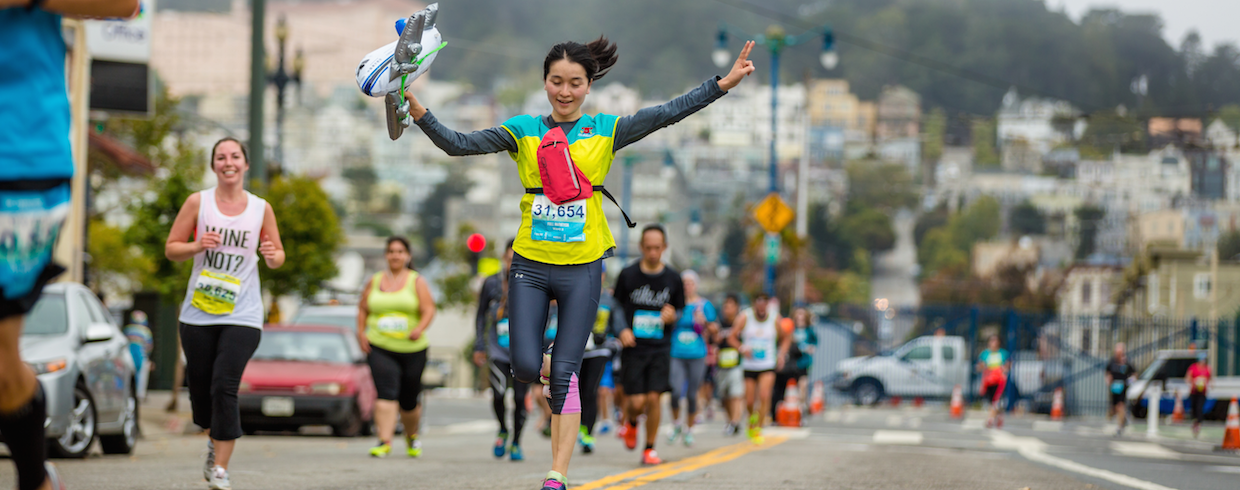Fighting Jet Lag for Runners
Many runners travel from all around the world to run The Biofreeze San Francisco Marathon! If not properly prepared, jet lag can wreak havoc on your body pre- and post-race. Fortunately, we have some great tips on fighting jet lag for runners! The following blog article comes from Anthony Luke MD, MPH and our Medical Provider partners at RaceSafe.
Don’t forget to sign up for RaceSafe before TSFM (or check to make sure your info is up to date, if you had signed up previously)! Runners are encouraged to complete their RaceSafe profile and share their emergency contacts and pertinent medical details to ensure the UCSF Medical Team can properly treat them if needed on race day.
—
The Starting Line: How can I combat jet lag when traveling for a race?

With The Biofreeze San Francisco Marathon right around the corner, it’s a good idea to prepare for one of the oft-neglected aspects of racing: jet lag. Many runners travel long distances, spending hours in the airport and airplane, only to race or train while jet lagged. Jet lag results from extensive travel over several time zones, which affects normal circadian rhythms. Symptoms can include sleep disturbance, fatigue, poor concentration, and gastrointestinal upset such as heartburn, indigestion, and diarrhea.
A review by Dr. Samuels at the University of Calgary, gives insight to combating jet lag for athletes; in particular optimizing performance and recovery. Specific practical tips can help keep you in top shape. Make sure you are well rested before flying to reduce sleep debt. During the flight, you should set a watch to the destination’s schedule, and adjust your sleeping and eating plans to this time zone.
Use appropriate sleep aids like ear plugs and eye shades as necessary. Medications such as mild sleeping pills can help you sleep; or strategic use of caffeine can help you stay awake to adjust to the new time zone. Melatonin is a supplement which helps with circadian adaptation that you may consider when crossing 3 or more time zones. The review suggests that preflight doses of 0.5-1.5 mg, followed by doses of 3-5 mg for 2-3 days after arriving can be effective. Note that it still takes 2-4 days to optimally adapt to your new time zone, so lightening your daily work, play and training schedule should be considered if possible.
This review has additional practical tips for travel, including specific tables for suggestions when traveling eastward or westward, and how many time zones you are crossing. The key to all of these strategies is advance preparation. Plan ahead so your sleep schedule fits your destination’s time zone, using supplements and caffeine as necessary to help make these adjustments. With proper planning and preparation, you can effectively reduce jet lag so you can focus on what you do best: running.
The Finish Line:
Manage your sleep to adjust to the schedule of your destination ahead of time. Plan to reduce your sleep debt and consider sleep aids, such as melatonin supplements.
References:
1. Samuels CH. “Jet lag and travel fatigue: a comprehensive management plan for sport medicine physicians and high-performance support teams.” Clinical Journal of Sports Medicine, May 2012. http://www.ncbi.nlm.nih.gov/pubmed/22450594
Photo credit:Hang_in_there cc
*Note: This general information is not intended to be a substitute for medical treatment or advice. Always consult a professional before making changes to your health and wellness practices.


